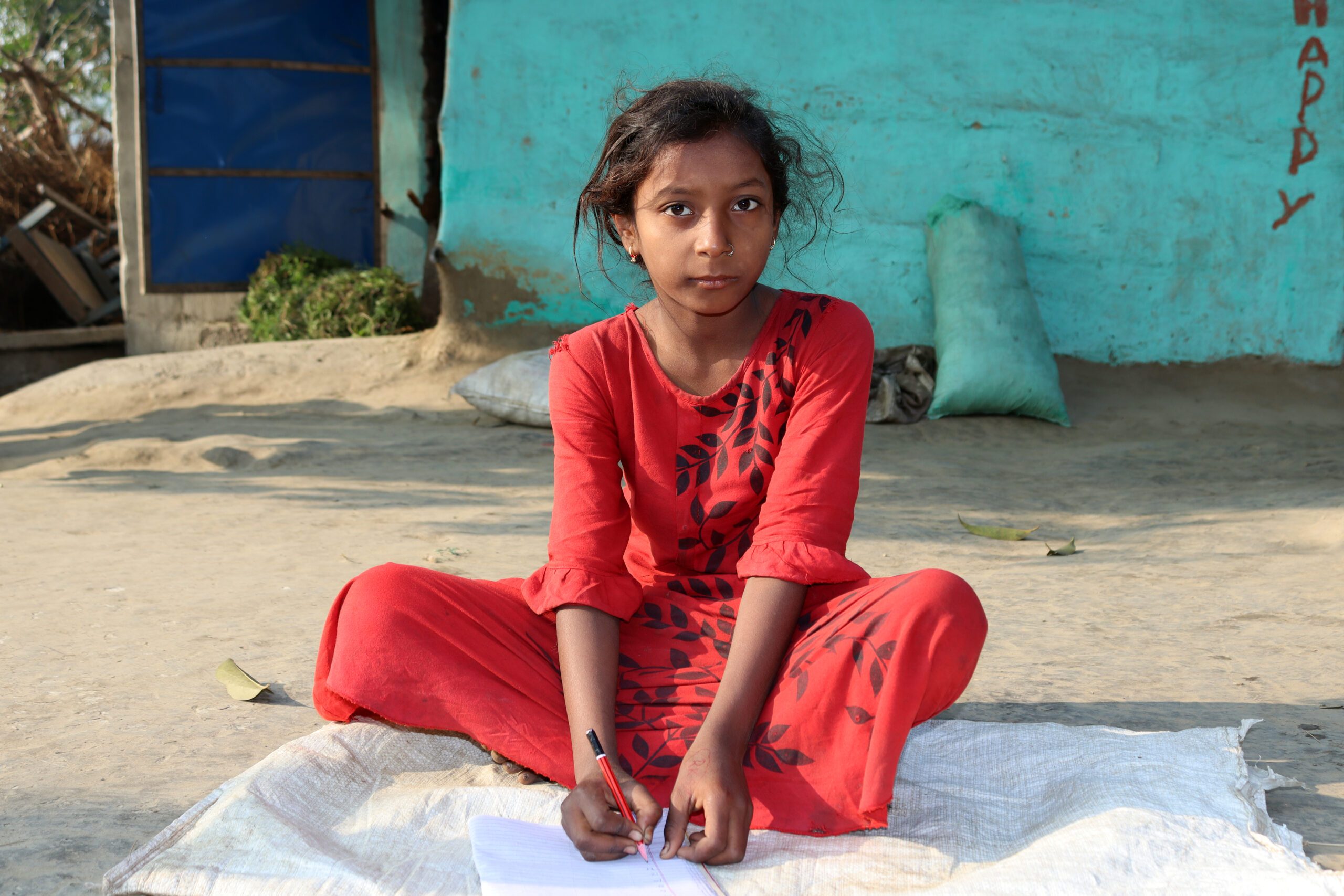Catch-up classes help Rima discover the joy of learning
Rima, 12, shares her story of transformation. Through catch-up classes, she has improved her learning and is discovering how to stand up for girls’ rights in her community.

Learning to dream
“My name is Rima, and I’m 12 years old. In my community in Dhanusa, girls like me are expected to stay at home, do household chores, and get married early. Education is often not seen as a priority for girls, and families sometimes marry their daughters off young to reduce financial pressures.”
“I come from a large family with limited resources. At home, I struggled to get any support for my studies. Reading and writing were hard for me, and my grades were low. I felt embarrassed to go to school because I couldn’t keep up with my classmates.”
“My mother says, ‘In Dhanusa, girls face barriers to education caused by poverty, cultural norms, and harmful traditional practices such as child, early, and forced marriage.'”
“Girls are also weighed down by domestic responsibilities, ranging from household chores to caring for younger siblings or elderly family members. As a result, many girls have to juggle their studies with their domestic responsibilities and find it difficult to focus on their education.”
“She adds, ‘We work hard for our children, but our income is not enough to provide them with everything they need. We hope that all our children will be able to complete their higher education.'”
“When my teacher saw I was falling behind, she suggested I join a remedial class at an Accelerated Learning Programme (ALP) centre. At first, I wasn’t sure. I had missed so much school, I thought I couldn’t catch up. But the ALP turned out to be a safe and encouraging space where learning became fun.”
“But the ALP turned out to be a safe and encouraging space where learning became fun.”
Rima
Improving education and challenging traditions
“In the ALP classes, I learned things I hadn’t before. I started with basic letters and numbers, and after 3 months, I could construct full sentences in Nepali, improve my English, and even solve addition, subtraction, and multiplication problems. The facilitators used games, stories, and practical exercises that made learning exciting and easier to understand.”
“But it wasn’t just about schoolwork. In class, we also talked about harmful traditions, like child marriage, and why education is important for girls. I realised that by staying in school, I could make my own choices about my future. I learned that girls should have the chance to finish their education, stand on their own feet, and only think about marriage when they are ready.”
“I also started sharing what I learned at home. I discuss with my parents the importance of supporting my studies and helping my younger siblings learn. I can see that they are listening and understanding why education matters, not just for me but for all our children.”
“The catch-up classes also engage our parents and conduct sessions for them that focus on the importance of education for children. My mother attends the sessions regularly.”
“My mother says, ‘These trainings teach us about our roles and responsibilities in supporting our children’s learning and creating a favourable environment at home.'”
“These trainings teach us about our roles and responsibilities in supporting our children’s learning and creating a favourable environment at home.”
Rima’s mother
“Now, I can read stories without stumbling, write sentences properly, solve maths problems I struggled with before, and feel proud of my progress. Learning has given me confidence and hope for the future. I know that education can help girls like me challenge old norms, make our own choices, and create a better life.”
About the project
Child, Not Bride is a four-year, multi-sectoral project funded by the Norwegian Broadcasting Corporation (NRK Telethon) that focuses on education, developing youth leadership, and strengthening youth economic empowerment. The project is led by Plan International and implemented by our local partners, BEE Group in Bardiya and Aasaman Nepal in Dhanusa.
One of the project’s key strategies is the ALP, which aims to bridge the gap for children who have dropped out of school or experienced interruptions in their learning. The ALP centres play a pivotal role in building children’s confidence, enabling them to return to formal schooling and stay engaged in their education.
Through personalised support, a tailored curriculum, and a nurturing environment, ALP aims to break down barriers that prevent children from accessing education, ultimately fostering a generation of empowered and educated individuals ready to make a positive contribution to their communities.


